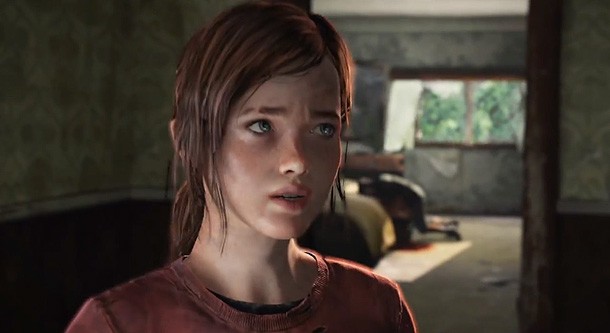Opinion – Ambiguous Endings Shouldn’t Be Feared

Video game storytelling has grown tremendously. In less than 40 years, we've gone from two ping-pong paddles and a ball to full-blown narratives, multidimensional characters, and complex themes. I love watching people dissect modern games and come away with different interpretations, and that developers even hide secret messages for the most dedicated players to unravel. Despite this, many gamers haven't reacted well to non-traditional storytelling and cryptic endings.
Spoiler warning: This editorial discusses the endings of The Last of Us, BioShock Infinite, Mass Effect 3, and Zero Escape: Virtue's Last Reward.
Lately, I've noticed more and more blowback at endings that don't wrap things up in a neat little package, and instead leave gamers to make their own interpretations. Ambiguity is looked at as the ugly stepsister of endings. How dare the writers leave any unanswered questions? One of the problems with video games and why gamers yearn to have the loose ends wrapped up is the time commitment. Compared to watching a movie, there's more buildup and hype to the culmination of our efforts. Being left unsatisfied stings, especially when you've spent numerous hours with the characters and universe. Not every game should walk the ambiguity route, but I wish gamers would take some delight in coming to their own conclusions.
Take Naughty Dog's recent hit, The Last of Us. The writer made a deliberate choice to end with Joel lying to Ellie and the audience not knowing what that lie will mean for the pair. Ellie actually asks him if he's telling the truth, acknowledging to the audience that even she is speculating about Joel's motivations. However, Joel continues his lie and she responds with a simple "okay." You can take her "okay" to mean a number of things, but the credits roll leaving you with just that word. While many defended this ending, the first question I was asked by many gamers is if I thought Naughty Dog would release DLC or a sequel to "provide closure" and "wrap up the story." My response has and always will be that knowing the complete outcome would ruin it . Part of the magic is putting together all the information and interpreting those last lines for yourself. I've thought about that ending long after I saw it because it left me to connect the dots. I am satisfied by my interpretation, and don't need Naughty Dog to spell it out in order to enjoy one of the year's best tales.
Not all stories have clean resolutions, and neither do those in reality. Life is messy and complicated; journeys don't end with all the pieces in place. Some of the best writing must be analyzed, left to one's own interpretations, without having writers commit to one "right" way to take their work.
Science fiction often leaves loose ends and unanswered questions. For whatever reason, this has been met with resistance when it pops up in games. Zero Escape: Virtue's Last Reward's ending is a classic take on the sci-fi genre, yet the complaints are rampant. Many gamers thought it was simply a setup for a future game, despite it being reminiscent of many speculative science fiction stories. Few absolutes are presented in VLR; by the end, you can't trust your own thoughts, and that's where it succeeds. Did the game end where it began? Time travel is always complicated and some of the best sci-fi plays off its ambiguity.

However, a bad ending is a bad ending, and there's no getting away from that. Just make sure you're calling out the company because it was poorly executed, not just because it's different. Fans felt like Mass Effect 3's often-debated finale didn't fulfill the cocktail of promises BioWare waved in front of them, especially regarding their own choices. The fact that fans couldn't bear any loose ends, such as not knowing the impact of the destruction of the mass relays, says something about how powerful the series' storytelling is. Nonetheless, for some the ending overshadowed the entire game. When fans have a five-year investment in a series, sky-high expectations can make ambiguity hard to pull off. This is also a two-way street, though. Fans must meet writers halfway, and allow them to experiment and not force-feed them all the answers.
As the industry grows, more styles will emerge. This makes me worry they won't be embraced because we're too rigid in our expectations, rejecting anything that turns away from the norm. Still, I'm hopeful. Over the last few years, not all ambiguous endings have been met with displeasure. Games such as BioShock Infinite inch closer to great literature and film; gamers weren't just watching and having all their questions answered, instead being invited to think through what Infinite's ending meant.
The best games spark us to discuss and analyze them with others. This is the most gratifying experience a gamer can offer and I'd hate for gamers' longing for neat conclusions to deter writers from going outside of the box. We have to be okay with not having our hands held; the writers are sharing their stories with us, and sometimes the best storytelling asks for a little more of its audience than a passive acceptance of perfectly laid out details.

Get the Game Informer Print Edition!
Explore your favorite games in premium print format, delivered to your door.
- 10 issues per year
- Only $4.80 per issue
- Full digital magazine archive access
- Since 1991









